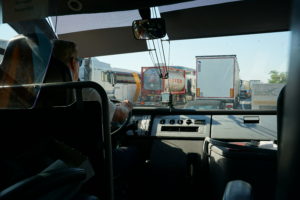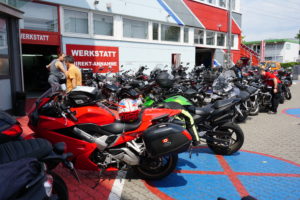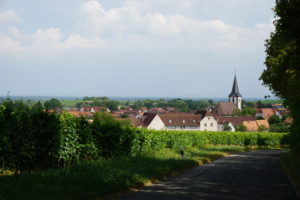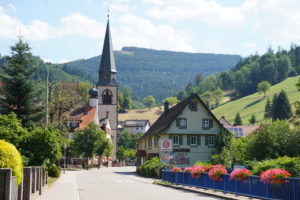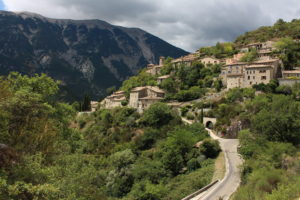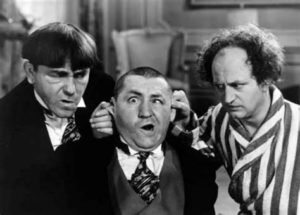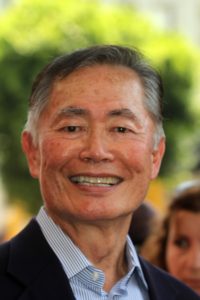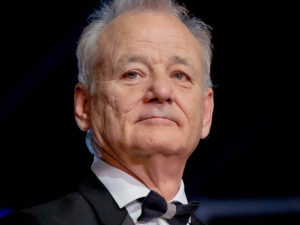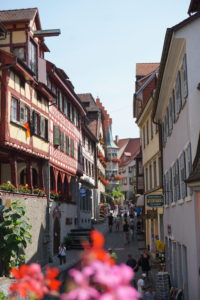
August 9: I wish that I owned the geranium franchise for western Europe. Virtually everywhere I go there are planters and window boxes stuffed to overflowing with the things. There are millions of them. And these are not your emaciated, straggly specimens that occasionally adorn Toronto’s gardens. These are flourishing, healthy plants that bespeak careful maintenance and continuing care. I think those geraniums tell us that Europeans interact with public spaces in their towns and cities differently than we do in North America.
North Americans generally aspire to home ownership. Sociologists might tell you that this reflects the “pioneering” mentality that was established when our country was young: As immigrants, we all wanted a piece of land to call our own, after being denied that opportunity in Europe (or where ever we came from). A home is paramount to many people and it has become a focal point in their lives. It’s where we live, but it’s also usually where we entertain and gather with friends. Our rallying cry is: “Come over for dinner. We’ll have drinks and a barbecue”.
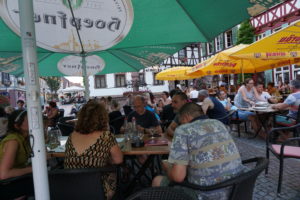
On the other hand, Europeans have a rich history of gathering with friends outside their home. The restaurants and cafes are where you go to meet your friends and neighbours, to see and be seen. Public spaces are heavily used and there’s a certain formality to gathering. Friends are acknowledged, hands are shaken or cheeks air-kissed before sitting down. Gossip ensues. When I came into this square in Bretten Germany, the chattering was so loud and consistent that it reminded me of a hen house.
Even young children seem to grasp that this is a different place where acting out is not acceptable. It seems to me that they are treated more like small adults when in public places, unlike many North American children who seem to be allowed to run amok, as if wait-staff are also part-time babysitters.
If my thesis is correct, the North American focus on socializing in private means that we attach little significance to our public realm (streets, parks and space around buildings) and generally 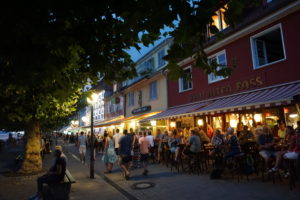 have low expectations for what it should be. The result is that we are given low quality design, and poor maintenance which has allowed much of our public infrastructure to become shoddy and unkempt. As tourists, we love to sit in the cafes and restaurants, but as citizens we are undemanding. As a result, there are few really excellent public spaces in Toronto: Berczy Park in the St. Lawrence neighbourhood is a notable exception.
have low expectations for what it should be. The result is that we are given low quality design, and poor maintenance which has allowed much of our public infrastructure to become shoddy and unkempt. As tourists, we love to sit in the cafes and restaurants, but as citizens we are undemanding. As a result, there are few really excellent public spaces in Toronto: Berczy Park in the St. Lawrence neighbourhood is a notable exception.
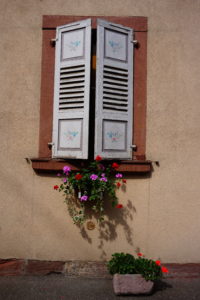 Europeans live outside their homes and have higher expectations of public spaces and are more aware of good design and the things that make for really comfortable public spaces. They know that they make a contribution to life in the streets when they do even modest things – like plant a beautiful window box full of geraniums.
Europeans live outside their homes and have higher expectations of public spaces and are more aware of good design and the things that make for really comfortable public spaces. They know that they make a contribution to life in the streets when they do even modest things – like plant a beautiful window box full of geraniums.
